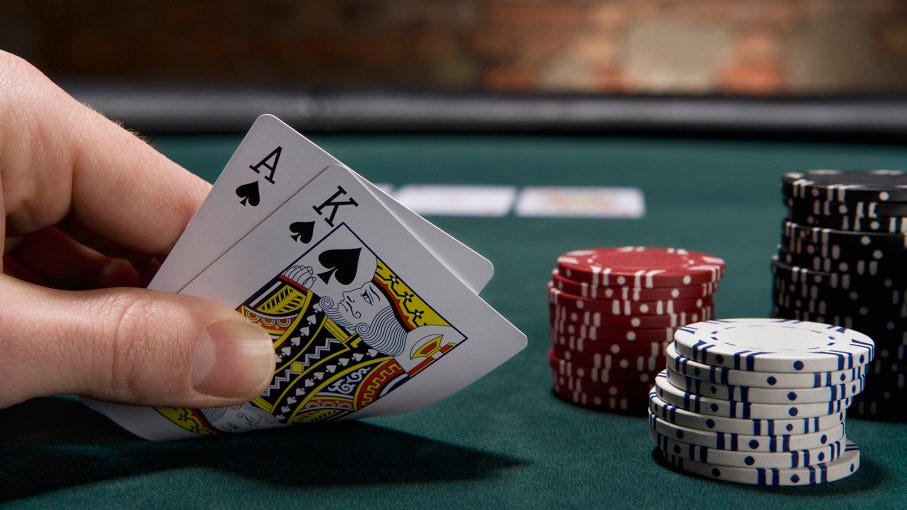Rule #13: Judge your decisions carefully
We take credit and blame for things we do not control
My father was a smart man, but he had a weakness for gambling. He spent long hours at the blackjack table and at the horse racetrack. He’d sit in silent thought for long stretches of time, confident in the misguided belief he could out-think the casino and their profitable probabilities. Whenever he’d lose, I’d watch him second-guess himself. And whenever he’d win, I’d watch him take too much pride in the results. He was like a pendulum that spent most of its time at the extremes when the middle ground, the fact that he was an intelligent person playing a losing game, was hard for him to see.
Most people realize that when we make a decision, we have limited information. That’s part of what the phrase hindsight is 20/20 means. It’s an acknowledgement that it’s only in the future that we have better knowledge (although it’s never perfect). We know, rationally, that even the best possible choice right now must be made with only the limited knowledge we have.
But primarily people judge decisions based on the results. It’s hard not to. Bad outcomes can be deeply painful or embarrassing. So when an investment fails, it becomes a bad investment. If a relationship sours, it becomes a bad boyfriend. If you ask someone what the best decision they ever made was, they will tell you about the outcome, not the thinking that comprised the actual decision.
This habit of oversimplification makes us prone to bad decisions. We generate one simple explanation based on one outcome and discount all of the factors we rightfully worried about while making the decision. Like my father, we take credit for all the things we did not control that worked out in our favor, or blame ourselves if they worked against us, and neither is accurate. One version of this is expressed in the adage fighting the last war. This is when we are so upset about a recent outcome that we overcorrect, increasing the odds of a new failure since we are optimizing for the recent past and ignoring what’s happening in the present.
Decide how to decide
The best decision you can make is to decide to evaluate how you make decisions. Typical lists of the attributes of good decisions look like this:
Have a clear goal
Rigorously consider the tradeoffs of alternative paths
Identifying biases and blindspots
This list is familiar and boring. Most people know these suggestions but few follow them. Why? First, we’re lazy. Thinking takes time and most people do not want to do more of it. Overthinking can be a problem too. But the second reason is more powerful and it’s that this list is devoid of emotion. If we’re excited or afraid we’re likely to speed past these steps, letting our feelings blanket over what is supposed to be a logical, rational process.
A better list includes introspective steps like:
Explore your feelings about possible outcomes
Acknowledge what you are afraid of and what you are hoping for
Don’t let emotion dominate your thinking unless you explicitly choose to
Accept that good decisions do not guarantee good outcomes
Have a person to be your sounding board to check your logic and emotions
Focus on learning for the future over perfection now
This list makes it easier to accept the possibility that we can be both devastated by an outcome, while also accepting that we made a smart decision given what we knew. Both can be true simultaneously. And the opposite as well: that we are thrilled about an outcome, but realize our logic was flawed and our assumptions were not well thought out. Holding on to both ends isn’t easy, but it’s wise. It’s a more accurate way to understand how life works and leads to better decisions in the future.
To put this another way, it’s wise not take too much credit for good outcomes and to not take too much blame for bad ones. We make thousands of decisions in our lives. Many of them are not going to work out the way we expect and that’s OK. We also need to admit we often do not know what the best outcome really is. Sometimes what seems to be a great outcome sours in a month, or a big disappointment today leads directly to a triumph next year. All this, in a way, is to see decisions as a set of good habits more than a scorecard of wins or loses.





A related thought is that an 80% chance of being right still means 2 times out of 10 you will be wrong. 80% are very good odds, but most of the time we have to make a decision about ONE time. We don't get to do it 10 times. This is support for the "made the right decision despite the outcome" attitude, but emotionally it's hard to accept it.
Thanks for taking on a prickly topic with courage and depth. One item I'd add to the "Better list" above is, Don't base your sense of worth or your approval on your decision or its outcome.